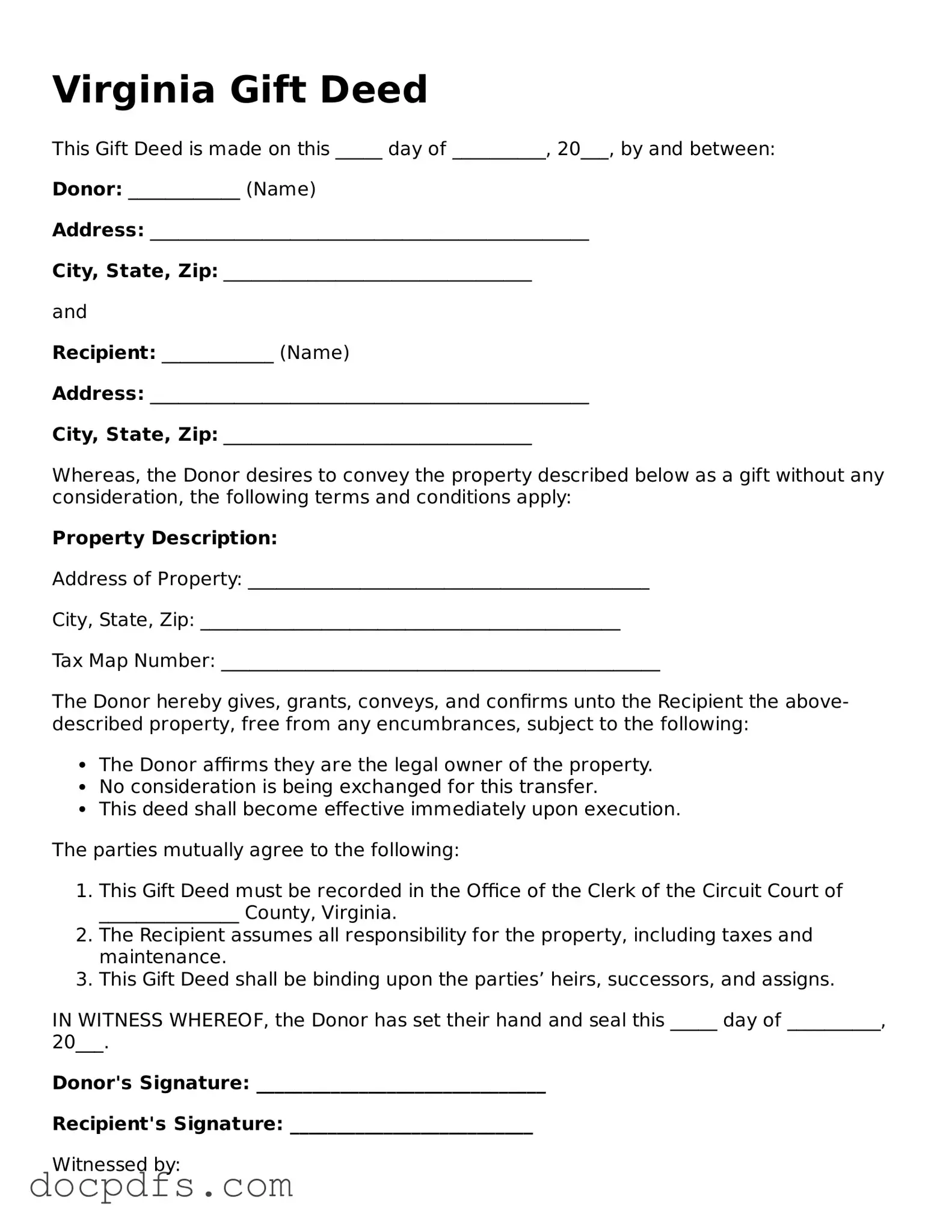Free Virginia Gift Deed Form
A Virginia Gift Deed is a legal document used to transfer ownership of property from one person to another without any exchange of money. This form serves as a formal record of the gift, ensuring that the transfer is recognized by the state. Understanding how to properly complete and file this deed can help avoid potential disputes in the future.
Open Gift Deed Editor Now

Free Virginia Gift Deed Form
Open Gift Deed Editor Now

Open Gift Deed Editor Now
or
⇓ Gift Deed
Finish this form the fast way
Complete Gift Deed online with a smooth editing experience.